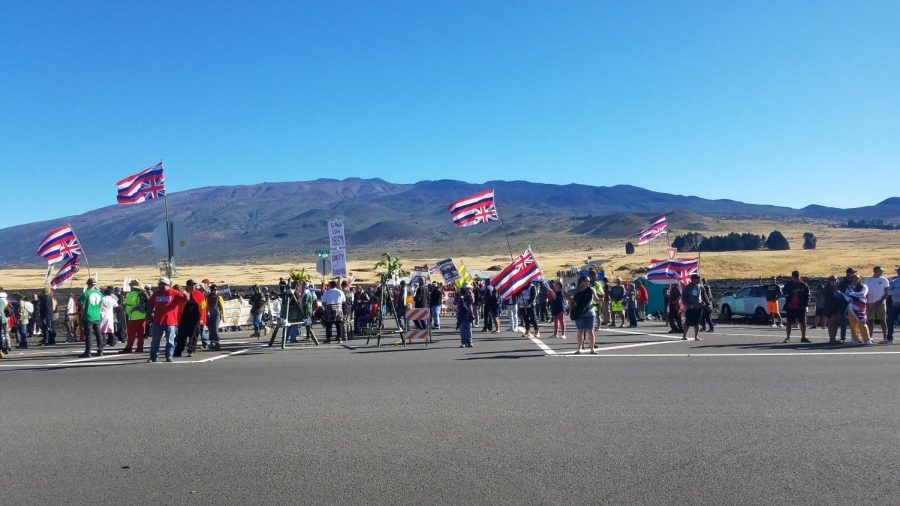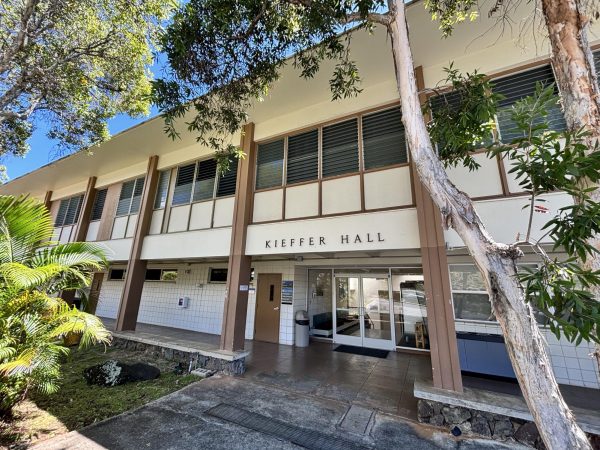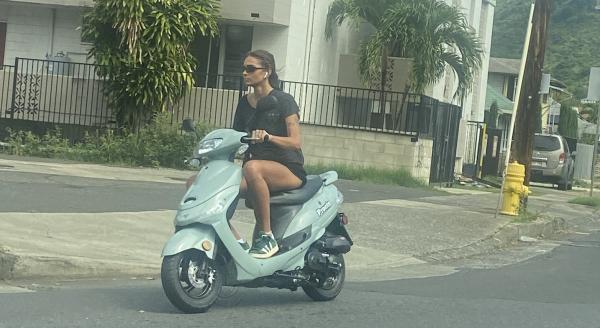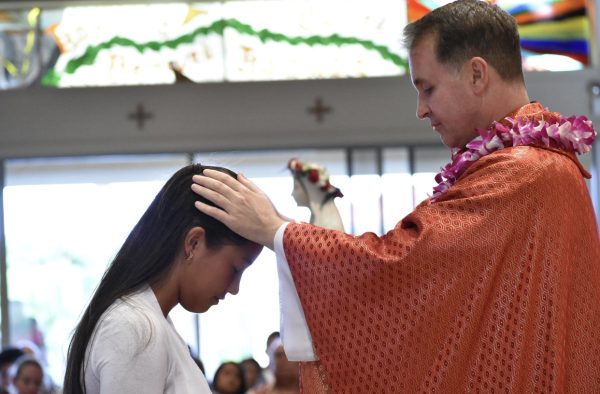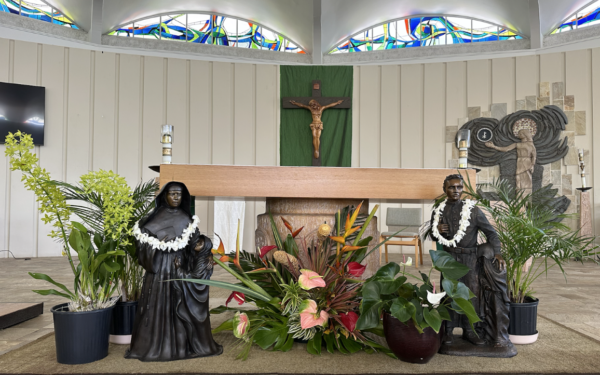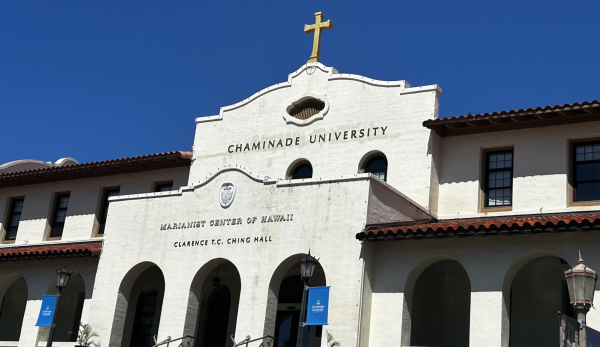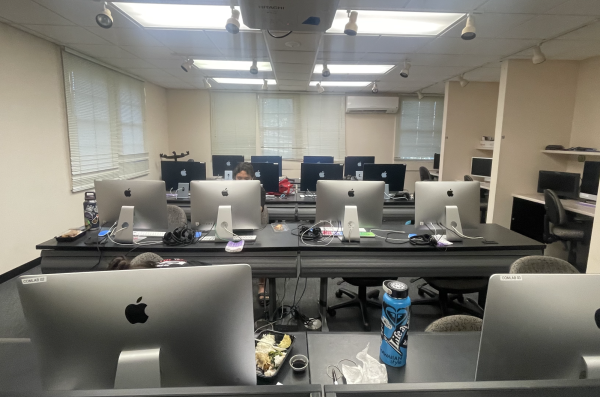Opinion: Maunakea Protests Oppose Unjust System
“We must take drastic action to oppose unjust failures of the political system,” writes CSGA president Kawena Phillips about the protests on Maunakea.
[Kawena Phillips is a fourth-year student majoring in International Relations and English and an executive council member of Hawaiian Club and president of the Chaminade Student Government Association.]
In the past several months, the battle for the future of Maunakea has dominated the daily life of many in Hawai‘i. This fight is more than just a telescope; this is an extension of many issues that plague Hawai‘i today including land and water protections, colonialism, and climate change.
A previous column in The Silversword tried to claim “it is an honor to host TMT (Thirty Meter Telescope) in Hawai’i.” To this I say, was it an honor for us to be chosen as America’s latest imperialist and colonialist seizure that has had over a century of negative impacts for everyone living in Hawai’i? Or an honor to host an overabundance of military buildup that has pushed out native residents, contaminated land, and polluted the environment? We need to stop allowing outside forces to dictate what is and isn’t an honor for the Hawaiian people.
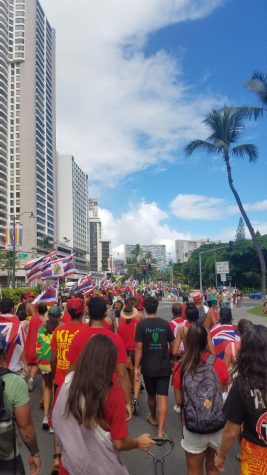
On Oct. 5, the march through Waikīkī spoke out against TMT and urged the protection of Hawaiian lands.
It is an honor for us to hail from this land, it is an honor for us to protect this land and perpetuate it in righteousness, and it is an honor for it to provide sustenance for us, just as Maunakea does. [The spelling of Maunakea is the traditional spelling that pays homage to its full name, Maunaawakea.]
The constant messaging from the supporters of TMT has followed the lines of, “the benefits outweigh the negatives.” But do they? TMT has promised it will bring economic growth for Hawai‘i. But the telescopes already on the Mauna only pay $1 a year for the lease of the land. Much of this land is meant directly for the benefit of Hawaiians as they are illegally seized “crown lands” taken from the Hawaiian Kingdom. Many of the observatories also don’t bring as many jobs for Hawai‘i residents as you think, according ot Hawai’i Public Radio. Often times most observatories fly in astronomers to do the work or have them “call in” from all over the world. This is due to the broader issue of minorities being underrepresented in STEM and is connected to the lack of good public education funding especially in Hawai‘i.
TMT has now required major state funds to support its construction with costs for a police presence to enforce the will of this foreign corporation in the islands, surpassing $10 million by Oct. 11, according to Hawaii News Now. That money could have gone into our schools to actually help our keiki. Instead, it’s being used to arrest and criminalize Hawaiians who happen to be on Hawaiian Homelands. Hawaiians, who have been criminalized for their lifestyle for generations, are now locked in a conflict over our way of life with a heavily militarized police force that responds to our peaceful demonstrations with riot gear, tear gas, batons and sound cannons.
When all legal options that the Kiaʻi [protectors] have tried, from court cases to legislation, have been expended, we must take drastic action to oppose unjust failures of the political system. History has shown that courts are not infallible in dealing out justice and often make mistakes. The fact that court costs money can tell you exactly who that process favors. Those with money to donate to political campaigns and “offer” to “donate” to communities will also have a judicial advantage in litigation. When the people’s voices are ignored by government, what options other than so-called “illegal protests” do we have to change the future? Much of the civil rights movement was “illegal,” the anti-apartheid movement was “illegal,” the protection of Kahoʻolawe was “illegal.” These actions are all viewed positively today as necessary actions; Maunakea is no different. When the system fails the people, we have a responsibility to resist outside of the system.
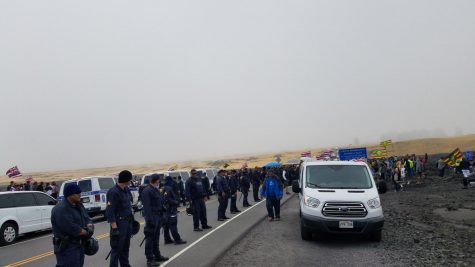
We are in the midst of a climate crisis and money has been a major focus of it as we push for a better society that values the environment over money. TMT contributes to this issue. Maunakea is a major aquifer for Hawai‘i island and is at risk of being contaminated. There have been multiple audits showing a pattern of abuse and mismanagement by UH and the State of Hawai‘i. In 1995, the Sierra Club forced the state and UH to airlift mass amounts of trash that had been dumped on the summit by the observatories. Multiple chemical leaks have also occurred on the Mauna including mercury and coolant agents, chemicals that are toxic to drink. This is just one project in a long history of projects that have mismanaged and abused the land for profit rather than taking care of it for future generations.
We need to stop forcing indigenous people to “compromise” with Western goals when it comes to their land. It is not a compromise when the indigenous are forced to surrender their land for Western gains. We need to start taking better care of our land and ensuring that future generations have the benefits of a healthy ‘āina as we did. Is the risk of contaminating our natural water sources worth it? Is handing control of the Mauna back to the very people who have mismanaged it for decades wise? Is this project worth further marginalizing an already marginalized and vulnerable indigenous people? These are the questions we must consider before we support projects like TMT that claim to bring in money because in Hawai‘i, the land will always be worth more than any money can buy.
